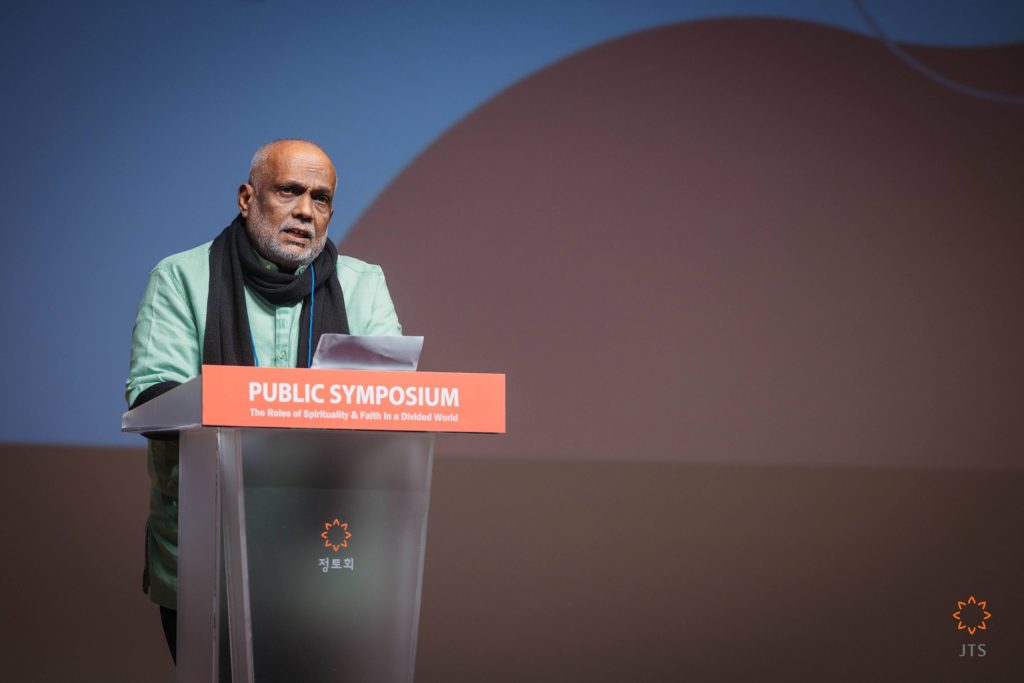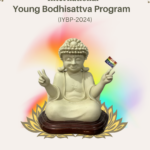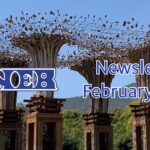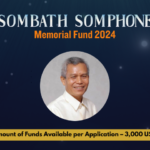[et_pb_section admin_label=”section”]
[et_pb_row admin_label=”row”]
[et_pb_column type=”4_4″][et_pb_text admin_label=”Text”]
The Role of Spirituality and Faith in a Divided World
This keynote address was delivered by INEB Executive Committee Chairperson, Harsha Navarante, on October 29th, 2022 at INEB’s 2022 Public Symposium hosted at the Jungto Society headquarters in Seoul, South Korea.
“Today, we need to address the future. Not with prayers prompted by fear, but by taking realistic action founded on scientific understanding. The inhabitants of our planet are interdependent as never before. Everything we do affects our human companions, as well as innumerable animal and plant species.“
His Holiness the Dalai Lama’s COP 26 message, October 31, 2021.
When we look at the world today, we see a crisis that we never imagined or expected. In order to limit the consequences and damage, we all need to work together in great cooperation and solidarity. We need to find a path towards personal awakening in order to come out of the present suffering as a society that leads to a safer, harmonious, happier and greener world. We need to act and recognize the importance of humanity’s sense of oneness, our interconnectedness that links every human being as a part of us. Spirituality plays a big role in making that a reality, as well as taking ownership to care for our common future.

The challenges we face today are immense. The World is divided. Internal conflicts among ethnic groups/communities, wars fought between nations, hunger, drought , climate change, ocean pollution, degrading natural resources, exploitation by multilateral companies, media domination and manipulation, citizens’ distrust of democracy, tyrannical regimes taking dominion over nations, etc., are all contributing to this current crisis.
Since we, as human beings, are responsible for creating these issues, it is also our responsibility to confront and address them. It is time we came together at the global level to understand and commit ourselves to address these issues in ways that bring future benefits. First, we must individually be responsible to find solutions to these issues and carry a message to the greater society which creates hope for the future.
I have spent the last forty five years of my life as a development practitioner. My journey began as a volunteer in a rural village in Sri Lanka, bordering a jungle, far away from the city. During my time as a development worker in my country I have witnessed tragedy after tragedy, whether man-made or by natural causes. I have experienced the loss of friends and colleagues, who while seeking to make social change, lost their lives in the process. Some of them were even labeled as terrorists by the ruling regimes, though considered heroes by the common people. Unfortunately, heroism and politics in my country are such that, ironically, a person can be called either a hero or a terrorist depending on how you feel or wish. This may not necessarily be based on facts or justifiable reasoning. Under the guise of democracy, political parties create divisions and destroy the very fabric of social and moral values and ethics. They are responsible for pushing a country into desperate conditions resulting in an economic crisis and continuous human suffering.
Many people ask me, “How is it possible for Sri Lanka as a predominantly Buddhist country to go through such violent times, one after the other?” I have also often asked myself this difficult question.
During my childhood, our whole village community used to live as one big family. The village temple was the central place, the heart of my community. When the temple bell rang, we would all come together at the temple preaching hall. I had never seen police officers present in the village. The first time I saw a police officer was when I left my village and went to a boarding school in the city. The village was full of life and thrived on values of cooperation, coexistence, shared resources and solidarity. Living around the temple we learned to live this way, and the monks were our gurus. Unfortunately, as time passed, politics entered the temples and the community started to be more dependent on politicians. Some of the Buddhist monks who were spiritual masters also started to follow the political trends rather than their faith and value system.
Lord Buddha’s teachings, that promoted unity and oneness within one’s village, society and country, started to fall apart. When society started to divide itself by ethnicity, religion and political beliefs, disaster after disaster followed. Most of you may understand this, and may have experienced similar historic events and recollections.
Today we live in a society where many of us are contradicting and violating its spiritual teachings and ethical or moral foundation. This has created a huge challenge for civil society activists and true social movements in countries such as ours. People are moving away from moral and ethical values in their search for quick and easy answers to existing socio-political issues.
It is important to seek the best method to practice what we preach and believe will stimulate social awakening. Do our politicians, leaders, preachers, practitioners and “do-gooders” really practice what they preach? It’s hard to say ‘yes’ to that question. Sometimes those recognized as spiritual gurus, preaching to a large group, are also responsible for breaking down society and contributing towards the ongoing negative trends through their teachings. It is, in fact, a real challenge these days to identify authentic, sincere, and truthful personalities. So what should be the role of a true leader of the people?
A true leader needs to be 100% committed towards the common good, and advance gradually and genuinely towards social and national goals, based on our values. He or she needs to move forward with like-minded people, with understanding, with a clear world view, and with the right set of attitudes. Great importance must be given towards setting long term goals and having the readiness to face challenges, all the while remembering that it will be a long haul. A true leader must also be prepared to ‘practice what he or she preaches’, so as to be an example and role model to others.
As activists too, we need to understand the challenges faced by us, discuss them and continuously shared them with our peers. I come from a country where bad planning, mismanagement, corruption and huge debt issues brought the country’s economy down to the ground. This, along with complicated social issues, has driven the country close to bankruptcy, that has resulted in increased human suffering. Today people are on the roads asking for system change. Policy makers need to plan and implement comprehensive reform programs including democratizing structures.
Many do not understand that the last 74 years of political party-based politics are responsible for the present situation in Sri Lanka. Doing away with the Democratic Parliamentary systems and adopting a Centralized Executive Presidency where the majority leaned towards nationalism while ignoring the needs and voices of the minority, has seriously damaged and destroyed the country’s vibrant social fabric.
As social activists, therefore, we demand de-centralization of executive presidential powers as also essential constitutional changes based on legitimate good governance for the common good.
A community such as ours, that is the International Network of Engaged Buddhists, needs to look at our respective country’s past, present and future. This includes mainstreaming our Engaged Buddhist values and putting those values into practice to benefit society as a whole. As Thich Naht Hanh said;
“Even the most painful and violent experience of life demands our full attention. When we are attentive to our own suffering, we will know that of others. That knowledge can help break cycles of suffering and violence in the world around.” In essence, he teaches us to live “in peace and mindfulness.”
Mahatma Gandhi said, “my life is my message,”and Martin Luther King‘s example of the great non-violent demonstration of the civil rights movement in the USA influenced Ajhan Sulak to call them his spiritual Kalyanamithra from different parts of the world.
INEB was given birth in his ancestral boat house among a diverse meeting of Kalyanamithra which is a significant historic event for all of us. He and his co-founders created this network which has expanded immensely today. The solid foundation they built has formed a strong network which is resilient and able to confront challenges and differences such as religion, ethnicity and geographical distances.
On the 90th birthday of Ajhan Sulak we will all remember him as the greatest “Upasaka” during our times who honored and served Buddhist percepts and practices with utmost devotion. He now looks to our younger generation to follow his path and take INEB towards a prosperous future.
[/et_pb_text][/et_pb_column]
[/et_pb_row]
[/et_pb_section]






